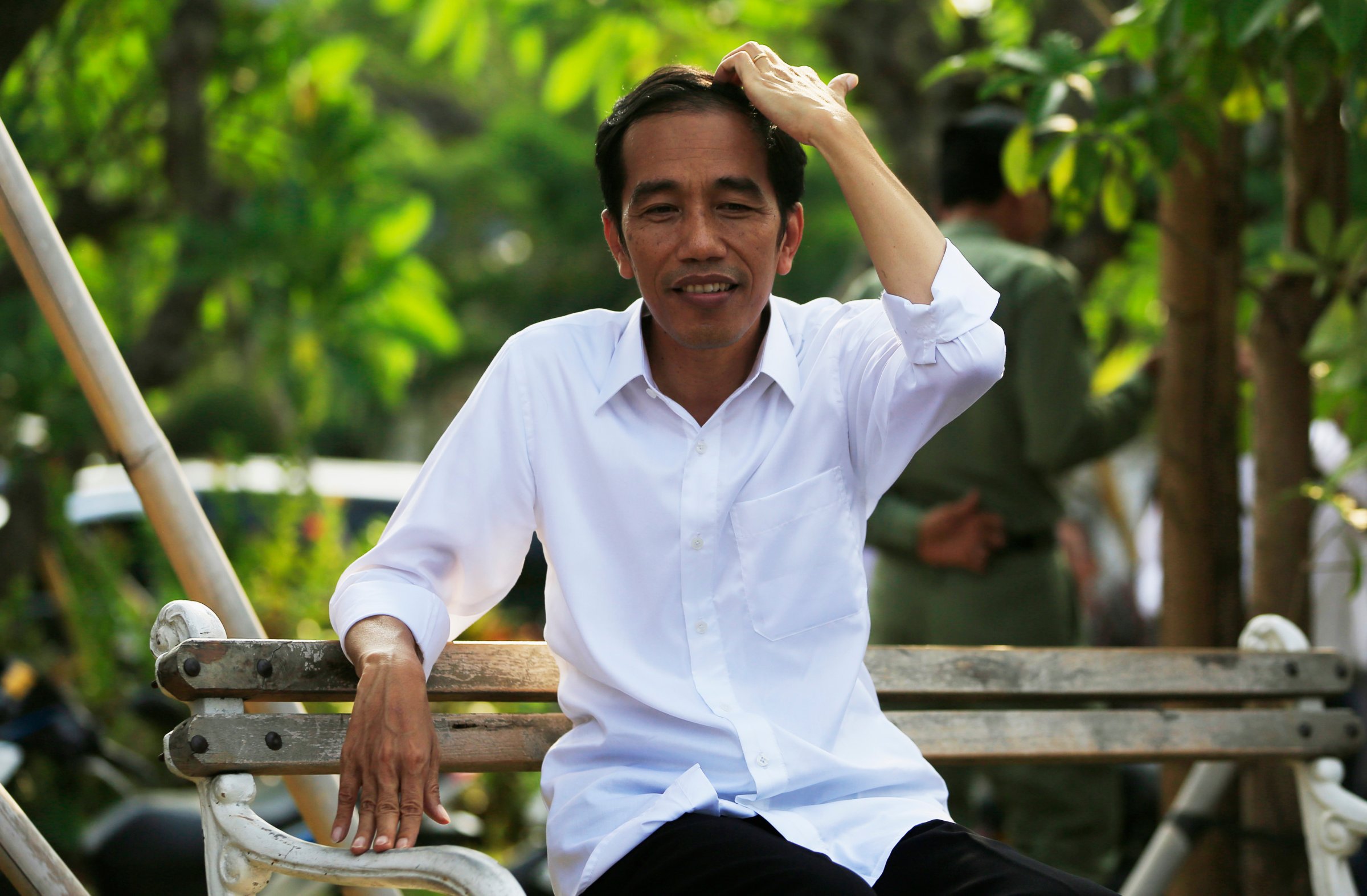
When Indonesia’s election commission announced late Tuesday that Jakarta Governor Joko Widodo had won July’s presidential election, the transition of the world’s fourth-most populous nation to democracy was finally made complete.
Sixteen years ago, when autocrat Suharto fell from power amid street riots and a financial crisis, it seemed the sprawling archipelago nation could break apart as politics in Jakarta descended into chaos. However, the victory of Joko Widodo, affectionately called “Jokowi,” shows how mature and stable the country’s new democracy has become. Jokowi is the first leader in Indonesia who is not affiliated with the old ruling class, but a self-made man, who built a political career with his honesty, smart policies and good results.
Now he faces an entirely new challenge: Proving that new democracies in the emerging world can govern effectively. Indonesia has become a rising star in the global economy, propelled by its increasingly wealthy 250 million people and government policies that are friendlier to investment. However, Indonesia, like many other emerging economies, is slipping. The IMF expects Indonesia’s GDP to grow by 5.4% in 2014 — not bad, but the rate has been declining steadily from 2011, when it was 6.5%. The problem is the same that is dragging down developing nations everywhere, from India to Brazil: Politicians, mired in factional fighting and lacking the necessary will, have failed to implement the reforms critical to keep growth going.
Awaiting Jokowi is a long list of difficult reforms that economists believe are needed to restore Indonesia’s growth. Restrictive labor laws must be loosened up to attract more job-creating manufacturing and the nation’s inadequate infrastructure needs a serious upgrade. The education system could use one, too. Expensive fuel subsidies that are straining the budget have to be reduced. Jokowi will have to manage these changes in an unfavorable global financial environment. With the Federal Reserve moving to end its stimulus programs, the flow of dollars sloshing around the world will be curtailed, and Indonesia, with a large current-account deficit, might find financing itself more costly. The country’s currency and stock market were among the hardest hit when the Fed first announced it would “taper” its program in 2013.
The reforms waiting for Jokowi are almost identical to the ones the new Prime Minister of India, Narendra Modi, needs to implement. The similarities between the two don’t end there. Both were successful on a local scale but now have to implement policy on a more challenging national level. Both will have to navigate reforms through fractious democracies and sell hard change to protest-prone publics.
But Jokowi has it worse. While Modi’s Bharatiya Janata Party won a mandate in a landslide, Jokowi’s political party, the Partai Demokrasi Indonesia Perjuangan (which translates as Indonesian Democratic Party of Struggle), garnered only a minority in the nation’s parliament in April elections, which means he’ll have to govern in a potentially messy coalition. Jokowi’s own victory was more muted as well. He won 53% of the vote to best his chief rival, former general Prabowo Subianto, who may contest the results and drag out the election’s conclusion. “A narrow victory for Jokowi may not be sufficient to empower the newly elected president to carry out all the desired reforms,” worries Societe Generale economist Kunal Kumar Kundu.
There are also doubts about Jokowi himself. In comments on policy, he promised to raise Indonesia’s growth by tackling the nation’s toughest issues – from corruption to red tape – and make the country’s more open to investors. “We need to get our economy growing,” he recently said in one interview. “To do that, we must have more investment and also deliver in terms of infrastructure.” At the same time, Jokowi is new to national politics and policymaking and therefore unproven. “It is clearly too early to tell whether Jokowi will be the man to get Indonesia’s economy back on track,” says Gareth Leather, Asia economist at research firm Capital Economics. “There is no magic bullet to reviving growth.”
If Jokowi succeeds, however, he’ll offer yet another counterpoint to Asia’s other rising power, China. In Beijing, President Xi Jinping and his team seem to believe that tighter and tighter political control is necessary to guide the country forward. A Jokowi government could prove just the opposite – that open democracies can produce real reform and better lives for their citizens. The world will be watching.
More Must-Reads From TIME
- The 100 Most Influential People of 2024
- Coco Gauff Is Playing for Herself Now
- Scenes From Pro-Palestinian Encampments Across U.S. Universities
- 6 Compliments That Land Every Time
- If You're Dating Right Now , You're Brave: Column
- The AI That Could Heal a Divided Internet
- Fallout Is a Brilliant Model for the Future of Video Game Adaptations
- Want Weekly Recs on What to Watch, Read, and More? Sign Up for Worth Your Time
Contact us at letters@time.com